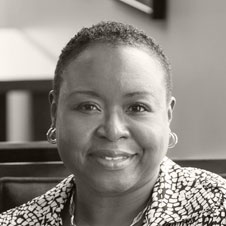Seattle University ‘s Family Business Exchange- Preserving the Family In Family Business
Holly Slay-Ferraro
Director, Professional MBA Program Seattle University
Editor: Bob Holert Introduced by: Bob Holert
Logged In =
Create =
Manage =

Holly Slay Ferraro, Ph.D. discussed the Family Business Exchange Program at Seattle University as well as the research they have done in various areas to assist family businesses. Holly is an Associate professor of Management at Seattle University and the Director of their Professional MBA Program. She is also the Founder of the Seattle U Family Business Exchange where leaders of family businesses can exchange ideas, discuss experiences and help each other problem solve.
Serving family businesses both local and outside the local area, Holly has worked to assist in succession planning and implementation of family business leadership. Key components required for new, changing leadership is the interest of the new leaders selected for the business, financing the change and working to make sure the leader handing over the reins is willing to let go. Holly provides assistance and research findings in the areas of conflict management, employee trust in the succession plan, the incumbents identity/interest in the business and their willingness of present leadership to transition. She has found that both fit and an Advisory Board for a company are important!
The Family Business Exchange assists family leadership participants to learn as well as provide input to research done in this area – in other words, “Help Seattle University help the participants”! The Business Exchange provides speakers who have run family businesses to share their experiences. Past speakers have come from companies like Canlis, McKinstry, Aqua Quip, Anthony’s Restaurants, Bargreen-Ellingson Restaurant Supply, Uwajimaya, Sabey Development and others. The good news is people are sharing!
Research has included “How does process influence succession?” The findings up to this point show this is not as important as other aspects. Whether the process is formal or informal does not matter. The transition is heavily influenced by good relationships of the parties involved in the transition. In some cases, a third party can help. A case Holly referred to was where the wife and mother of the two parties was able to facilitate the change. How do you measure success? Based on the relationships – do they get better or worse? Some families have joint succession while others have individual succession. Joint works best if the individuals involved are complementary from a skills/style standpoint.
At the end, the best way to evaluate the process is what is people’s perception of how the transition has impacted everyone involved – is it the right track or really rough? Previous succession experience is usually an asset. The speed of the transition should not be too fast or too slow. What is optimum really differs from organization to organization.
Anyone interested in being part of the Family Business Exchange at Seattle University needs to be a leader of a family business. For more information, contact Holly at the Albers School of Business and Economics, Seattle University.
During the Rotary business part of our meeting, Tanya Garrett- Franzen introduced our Student of the Month from Eastside Preparatory, Halma Mughal. Jeff Cashman handed out Paul Harris awards to Traci Tenhulzen and Scott Sadler (+4).
Andrew Face gave his Rotary Minute, discussing his role at The Commerce Bank of Washington. Wendi Fischer announced that March is Clean Water month in Rotary.
Chuck Kimbrough reminded everyone that the BBRC retreat is May 3 and 4 at Port Ludlow, while John Schwager shared there will be golf there the afternoon of May 3. Carmela Ramaglia announced who has “Happy $$”? Tanya Franzen shared how she only wants to deal with ethical business people, after having an episode with someone not of that ilk! Tanya was delighted to have made that decision!
About the Speaker
Her research examines how people grapple with dimensions of self (e.g. age, race, gender) in making career decisions and in various contexts such as family businesses. She is also interested in how organizational and institutional practices contribute to struggles with aspects of identity. Her aim is add to our knowledge of how growth, learning, and superior performance occur in the face of forces that cause people to question their beliefs about who they are or should be. She has published articles in Human Relations, Human Resource Management, Group and Organization Management, and the Journal of Leadership and Organizational Studies. Her research on midlife/midcareer transitions won a Cutting Edge Award from Academy of Human Resource Development. Before pursuing her doctorate, she held technical and managerial positions in industry for over 12 years.